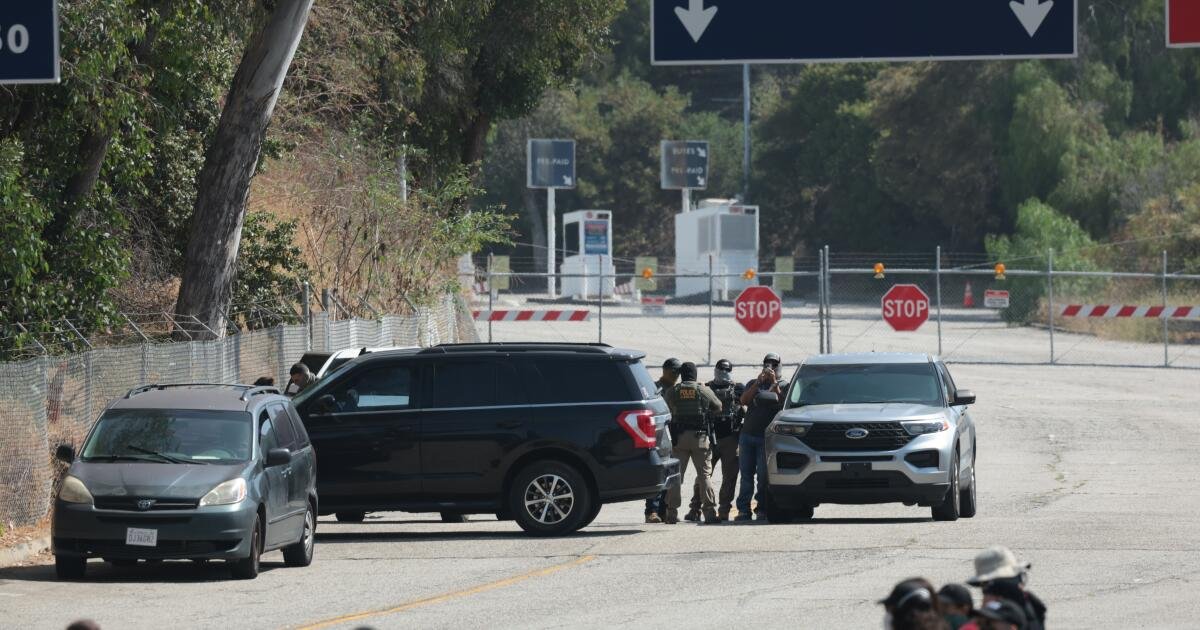Gov. Gavin Newsom signed 10 bills into law in what he called an unprecedented effort to combat the rise in retail crime, auto theft and the sale of stolen property, enacting tougher penalties for repeat offenders and strengthening tools for felony prosecutions.
“Let me be clear: this is the most significant bill addressing property crime in California's modern history, and I thank the bipartisan legislators, retail partners, and advocates who put public safety above politics,” Gov. Newsom said in a statement Friday morning. “While some have sought to return to the ineffective and costly policies of the past, these new laws show a better way forward — providing meaningful tools that make our communities safer and help law enforcement apprehend and hold criminals accountable.”
Governor Newsom's action comes eight months after he asked lawmakers to address increased retail theft across the state during the COVID-19 pandemic, which has seen a spate of theft incidents in California's major cities. Most dramatic The incident comes at a divisive time for California Democrats, who are divided over how to respond to growing public concern about a rise in property crime and brazen thefts.
The California Legislature has passed the following bills to address crime:
AB2943 plead guilty to a felony charge for third-degree theft, tally up the amount and expand drug diversion programs.
AB3209 The bill would allow courts to issue restraining orders of up to two years against people who commit theft, vandalism, or assaulting employees, and would require courts to consider whether the person lives in a “food desert” and whether the store is the only place they can get essential goods.
AB 1779 It allows prosecutors to prosecute multiple crimes that occurred in multiple counties and have them handled in a single court.
AB1802 Establishes a permanent California Highway Patrol property crimes unit.
1972 Expands the California Highway Patrol's Property Crimes Task Force program to include freight theft and railroad policing.
SB905 The law created two new “wobbler” crimes that can be charged as felonies or misdemeanors: breaking into a motor vehicle with the intent to steal and possessing property stolen from a motor vehicle with the intent to sell, valued at more than $950.
SB1242 Imposes tougher penalties for those convicted of setting fire to retail premises to commit organized theft.
SB1416 The penalties are increased if you sell, exchange, or return for a fee any items obtained through shoplifting, robbery, or theft.
SB1144 It would require online marketplaces to collect information from third-party sellers who make large volumes of transactions and give district attorneys the power to bring civil lawsuits to enforce violations.
SB982 Eliminates time limits on organized retail theft charges, allowing them to be prosecuted indefinitely.
Recent discussions about property and drug crime reform in California date back to 2014, when voters passed Proposition 47.
The bill, which reduces penalties for some nonviolent drug and property crimes, was passed with overwhelming support at a time when California needed to reduce prison overcrowding, which the courts found to be unconstitutional, and saved the state about $100 million a year, money that was reinvested in victim support and rehabilitation programs.
The main opponents of this initiative are Since I tried State lawmakers tried to repeal Proposition 47 but failed, but they returned this year with a revived statewide proposition that voters will decide on this November: Proposition 36, which would require drug treatment for some drug offenses, add new penalties to some theft and drug offenses, and add new sentencing enhancements that apply to all crimes.
Newsom and Democratic leaders crafted their own alternative measure that would address concerns about theft and fentanyl without being as strict as the prosecutors' measure, but with just days left before the Legislature went on a month-long recess in July, Newsom halted the effort.
The bill signed by the governor was introduced by Assembly Speaker Robert Rivas (D-Hollister) and Senate Majority Leader Dave G. and Rep. Mike Maguire, D-Healdsburg. Both lawmakers have run their own high-profile efforts to address concerns about rising thefts through legislation, and both voted against asking voters for Proposition 47's reforms.
The bill targets different aspects of property theft, making it easier to prosecute motor vehicle break-ins and capturing the total amount of theft that occurs over time and across jurisdictions. The law also gives stores the power to apply for temporary restraining orders against repeat shoplifters. Additionally, it requires online marketplaces to collect detailed information from sellers to prevent the illegal resale of stolen goods.
Governor Newsom signed the package of bills Friday morning outside a Home Depot in San Jose.
San Jose is the largest city in Santa Clara County. Biggest Ascent It has the highest incidence of these crimes among the state's 15 counties.
The governor and his political allies have publicly denounced Proposition 36, calling it draconian crime reform, an effort led primarily by prosecutors and funded by big box stores like Home Depot, Target and Walmart.
But some Democrats, including San Francisco Mayor London Breed, San Diego Mayor Todd Gloria and San Jose Mayor Matt Mahan, support tough-on-crime measures.
Governor Mahan announced this week that he is forming a new fundraising committee to raise funds for the ballot measure.
















